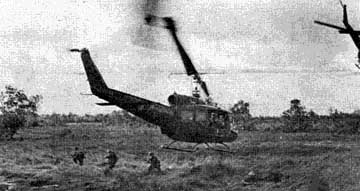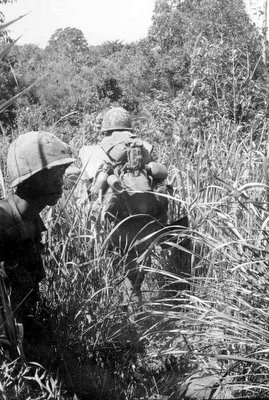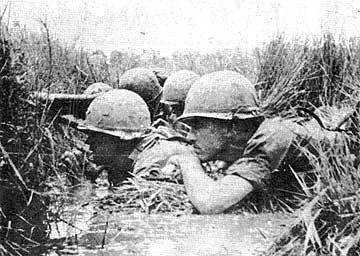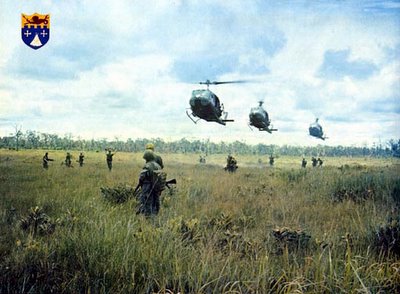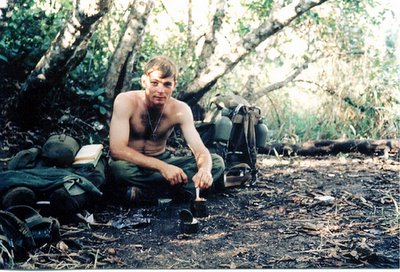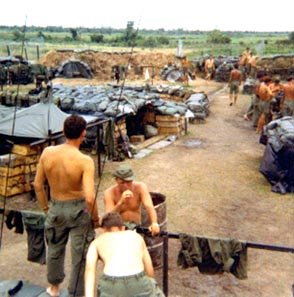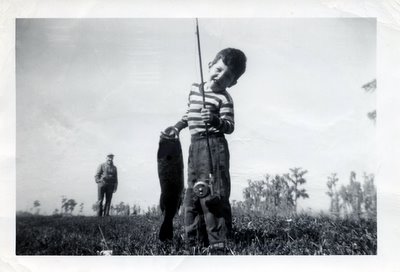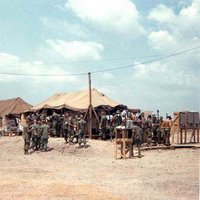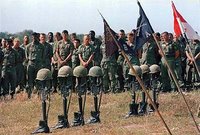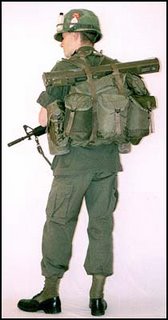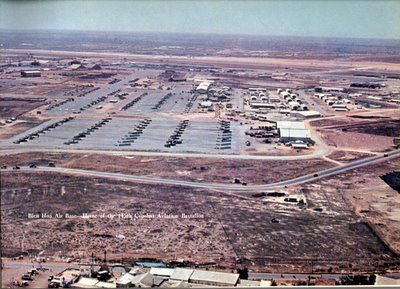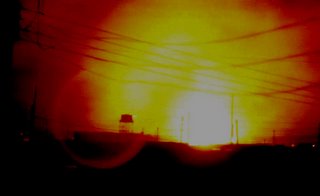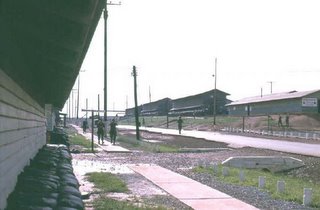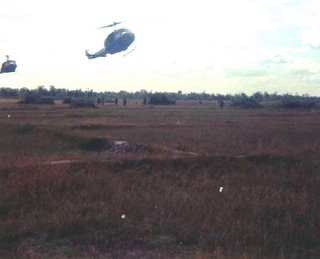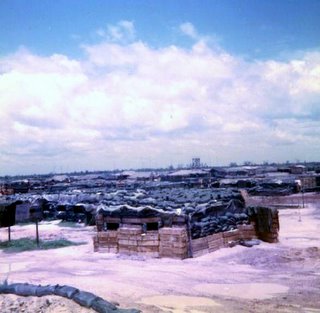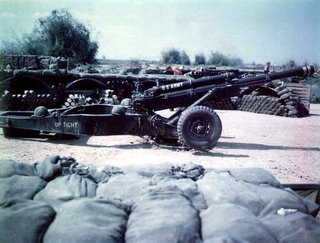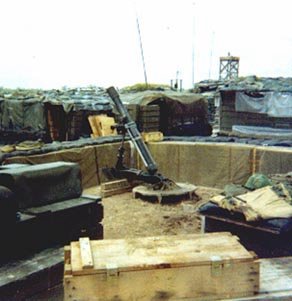Chapter 5: Some Miscellaneous Stuff at FSB PershingI didn’t really know where these next few things fit into my stories while I was at Pershing, so I just figured I would put them together in this post.
Latrine DutyWhen we didn’t have to walk patrol during the day, we just hung around the base camp and tended to daily chores. Things like laundry, writing letters, reading, cleaning our weapons, things like that. There was also one job that everyone took turns doing but didn’t enjoy for obvious reasons, burning shit. Yeah, you read this right, burning shit. The first time I had to do it, I just helped and someone showed me what to do.
www.landscaper.net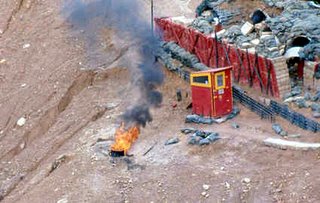
The latrines were like a typical outhouse with half a 55-gallon drum under the seat to catch, well, you know, shit. When the drum was near full, some lucky guy (since I was new in town, this times it was me) would get to go behind the latrine and drag the drum out and off to one side, the downwind side hopefully. Then he’d pour a little diesel fuel into the drum and set it on fire.
www.americanbusinessllc.com
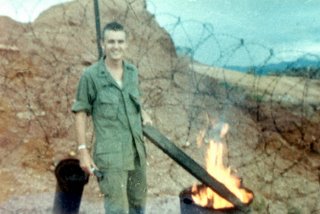
As the contents of the 55-gallon drum burned down, I had to stir it every so often so that all of the contents burned. That’s what the guy in the picture is doing. Being the new guy in town, I got the honors of stiring the shit this time.
Please take note of the black pipe stuck in the ground to the left of the fellow in the picture. That pipe is what was called a “Piss Tube”. I guess I don’t have to explain what that was for?
Sleeping ArrangementsMost of us slept in the bunkers. Typically the floor was covered in wood or a mat of some kind. It’s not very comfortable, but you were sheltered and protected in case we took fire. Each of us was also issued something called a Shelter Half.
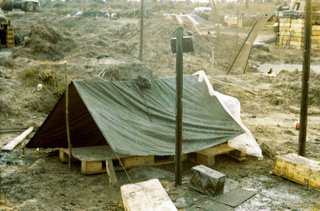
When you put two of them together, you got a small tent just big enough for two people. A lot of guys got together and set these up. One of the guys in my bunker and I decided one day to do just that. We set it up behind our squad’s bunkers in case we had to take cover quickly. We found some wood for the floor and slept on that. This was a lot better than sleeping on the dirt floor in the bunker. It looked something like this.
One night when we were sleeping, someone calls out “IN COMING!” I knew what that meant, our nightly mortar attack. I grabbed my M-16, jumped up and out of the tent and dashed over into the first bunker I saw, which by the way wasn’t mine. I landed right in a friggin pool of water. Some assholes decided they wanted to have more headroom in the bunker, so they dug out the floor. Since it was still the rainy season, the floor filled up with muddy water. I sat in the water cursing under my breath waiting for the mortars to stop. They stopped in a minute of so and had landed harmlessly out in the rice paddies. I climbed out of the bunker bitching and moaning, all pissed that I was now soaked with muddy water. I was pissed, but everyone else though it was funny as hell and laughed their ass off.
ClaymoresOut in front of each bunker we set up several claymore mines. They were nasty little things that could inflict a lot of damage over a pretty wide area.
The M18 Claymore antipersonnel weapon is a weapon often used by many countries around the world, named after the large Scottish sword. The Claymore is designed to fire steel balls (shrapnel) out to about 100 meters across a 60° arc in front of the device, which stands just off the ground. It is designed primarily to be used in ambushes and as an anti-infiltration device against enemy infantry, however it is also of some use against soft-skinned vehicles.
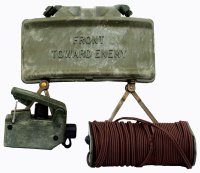
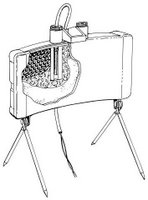
Yes, it really did say “Front Toward Enemy”
One day I was assigned to set up claymores out in front of some bunkers. I remembered how to do it from training so it wasn’t difficult to do.
* Place the mine on the ground
* Aim the mine using the sighting slit
* Firmly press the support legs into the ground, rechecking the aim.
* Lay wire from firing position to the mine.
* Insert blasting cap into either detonator well and secure with the shipping plug.
* With the "Safety" in the "Off" position, insert plug of wire directly into M57 Firing Device. (Boy, did I soon learn that this was an important step)
When you want to fire it:
* Depress the handle (squeeze the device) sharply. This will send an electrical current to the blasting cap, causing it to detonate. The detonation of the cap, in turn, will cause the main charge of C-4 to detonate, sending the steel fragments into the opposing personnel.
When I finished setting up the claymores, I got the sergeant so he could check how I did. He walked out in front of the bunkers so he could see them and he said everything looked fine. On his way beck to where I was, his foot caught the wire to one of the claymores pulling the firing devise off the bunker. When the firing devise hit the ground, the claymore exploded. It looked something like this.
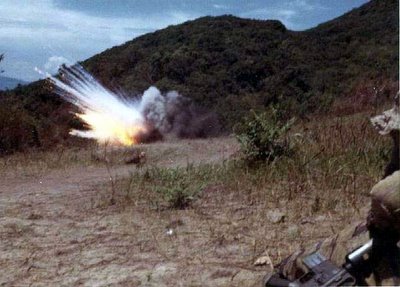
We all jumped sky high but the sergeant froze in his tracks. He turned and looked at me with a look that could kill and walked over to the firing device. He picked it up and showed it to me. I had forgotten to make sure the safety was on.
That little explosion caused quite a ruckus at Pershing that day. The lieutenant and sergeant were called up to speak with the company commander. When they got back I was called over to speak to them and caught a little bit of hell for my incompetence, but I didn't really get in trouble. Just a little yelling and a lecture about keeping my mind on what I was doing, always be aware of what I’m doing and above all, check to make sure the safety on the firing device is ON the next time.
By the way, someone else checked the rest of the firing devices to make sure the safeties were set. I guess the sergeant thought that was probably best for everyone.


